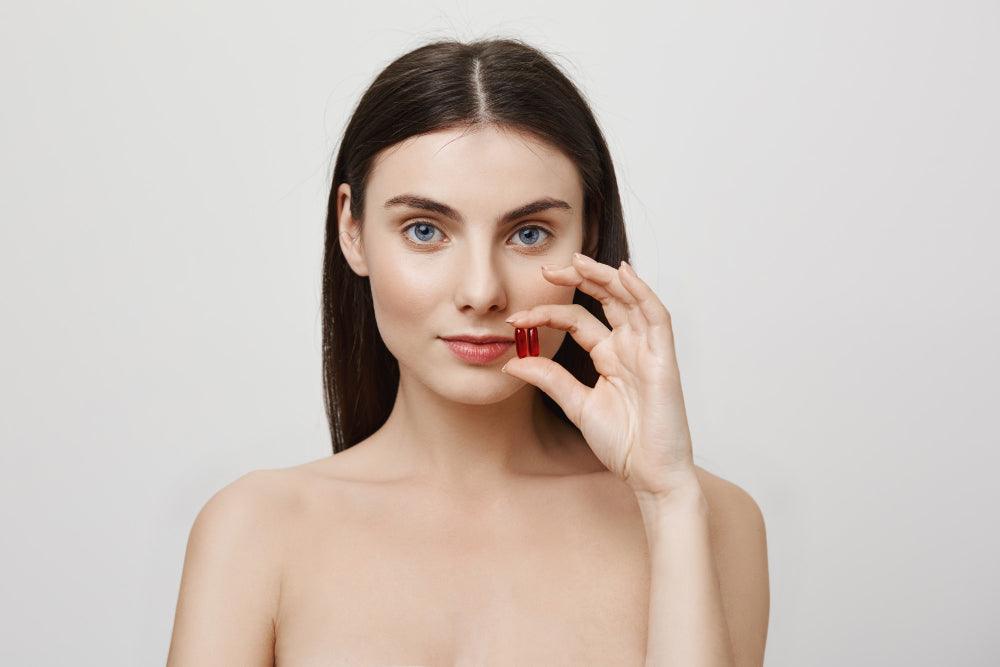What are important vitamins for women?


As women, we need to make sure that we are taking care of our bodies by giving them the nutrients they need to function properly. This means being aware of the vitamins and minerals we are lacking and making sure to supplement our diets with them.
While there are many different essential nutrients that are important for women's health of all ages, there are 5 that stand out as being especially critical.

Vitamins are micronutrients that are essential to human health.
They perform a variety of functions in the body, including helping to maintain the immune system, vision, and skin health. Vitamins can be either water-soluble or fat-soluble.
Water-soluble vitamins are not stored in the body, so they need to be consumed daily.
Fat-soluble vitamins are stored in the body's fatty tissue and do not need to be consumed as frequently.
Vitamin DVitamin D is one of the most important vitamins for women, especially those who are post-menopausal. This is because vitamin D helps to prevent osteoporosis, which is a condition that causes bones to become weak and break easily.
Vitamin D can be found in fatty fish such as salmon and tuna, fortified dairy products, and eggs.
You can also get your daily dose of vitamin D by spending time in the sun. Vitamin d deficiency can lead to an increased risk of osteoporosis in women. This is why it is prudent to maintain optimal vitamin levels.
Folic AcidThe next vitamin on our list is folic acid, which is important for pregnant women as it helps to prevent birth defects in the baby. Folic acid can be found in leafy green vegetables, legumes, nuts, and fortified grain products.
It’s important to note that you need to be getting 400 micrograms (mcg) of folate (the natural form of folic acid) daily. Some people may prefer to take a folic acid supplement.
CalciumAnother important vitamin for women is calcium. Calcium is necessary for strong bones and teeth, healthy blood clotting, proper muscle function, and more.
The best sources of calcium are dairy products such as milk, cheese, and yoghurt.
If you don’t eat dairy products or if you are lactose intolerant, you can get your calcium from dark leafy greens such as kale and broccoli, fish with edible bones such as sardines and salmon, and tofu. You should aim to get 1,000 mg of calcium per day.
IronIron is a mineral that’s important for carrying oxygen in the blood. It’s also necessary for proper immune system function and cognitive development.
Women need more iron than men because they lose iron during menstruation.
The best sources of iron are red meat, poultry, seafood, beans, lentils, dark green leafy vegetables such as spinach and Swiss chard, iron-fortified cereals, and dried fruit such as raisins and apricots. You should aim to get 18 mg of iron per day. Some people may also be recommended to take iron supplements during pregnancy.
Vitamin B12Belonging to the list of b vitamins known as cobalamin. It is important for energy metabolism, red blood cell formation, nervous system function, and more.
The best sources of vitamin B12 are animal products such as meat, poultry, fish, eggs, and dairy products.
If you don’t eat animal products or if you are vegan or vegetarian, you can get your vitamin B12 from fortified plant-based foods such as cereals and soy milk. You should aim to get 2.4 mcg of vitamin B12 per day through diet or supplements.
Vitamin CVitamin C is one of the most important vitamins for women. It helps the body absorb iron, which is essential for energy production and a healthy immune system.
Vitamin C is also a powerful antioxidant, which means it can help protect your cells from damage caused by free radicals.
You can get your daily dose of vitamin C by eating citrus fruits, tomatoes, broccoli, and sweet potatoes.
Vitamin AVitamin A is another important vitamin for women. It helps keep your skin and eyes healthy and plays a role in immunity.
Vitamin A can be found in carrots, sweet potatoes, spinach, kale, apricots, and eggs.
Vitamin B1Vitamin B1, also known as thiamine, is an important vitamin for women because it helps the body convert food into energy. It also helps to keep nerve and muscle function healthily
Vitamin B5Vitamin B5 is an important vitamin for women because it helps to balance hormones. It also supports the adrenal glands and helps to reduce stress levels. In addition, Vitamin B5 is necessary for healthy skin and hair.
Fortunately, there are ways to increase your vitamin intake without making drastic changes to your diet. Here are 5 tips that can help:
This one is a no-brainer. Fruits and vegetables are packed with vitamins and other nutrients that are essential for good health. Aim for at least 2 cups of fruit and 2½ cups of vegetables per day.
And don’t forget to vary your choices –eating a variety of different coloured fruits and veggies will help you get the most benefit.
Many foods such as breakfast cereals, bread, and some types of pasta are fortified with vitamins and minerals.
Check food labels to see which nutrients have been added and how much of each nutrient is present.
Fortified foods can be a good way to increase your intake of certain vitamins, especially if you have trouble getting enough from diet alone.
Multivitamins are a dietary supplement that contains a mix of vitamins and minerals. They come in pill form and can be purchased over the counter at most pharmacies or online.
Be sure to choose a supplement that’s appropriate for your age, gender, and any health conditions you may have. And don’t go overboard – taking more vitamins than you need can actually be harmful to your health.
Our bodies need sunlight to produce vitamin D, which is important for bone health and preventing certain diseases such as cancer.
Aim for 15 minutes of sun exposure per day without sunscreen – or about the amount of time it takes for your skin to turn light pink – for maximum benefit.
If you can’t get outside or if you have dark skin, you may need to take a vitamin D supplement to ensure you’re getting enough of this important nutrient
Fatty fish such as salmon, tuna, mackerel, herring, and sardines are rich in omega-3 fatty acids, which have numerous health benefits including reducing inflammation and lowering the risk of heart disease.
The best way to get omega-3 fatty acids is by eating fish 2-3 times per week but if that’s not possible then consider taking a fish oil supplement instead."
The answer to this question depends on a few factors, including your age, lifestyle, and overall health. If you have a well-balanced diet, you may not need to take dietary supplements. However, there are some groups of people who may benefit from taking a vitamin supplement. These include:
Pregnant women
People over the age of 50
Smokers
Vegetarians
People with gastrointestinal disorders
If you fall into one of these groups, it's a good idea to speak with your doctor about whether or not you should take a supplement. They will be able to determine if you have any deficiencies and recommend the best course of action

Multivitamins are designed to provide people with all the essential vitamins they need in one convenient pill.
However, many experts believe that Multivitamins are unnecessary for most people who eat a balanced diet.
In fact, taking a Multivitamin could even be harmful as it could lead to an overdose of certain vitamins or minerals.
If you're considering taking a Multivitamin, speak with your doctor first. They will be able to advise you on whether or not it is necessary based on your individual needs.
As you can see, there are a lot of important vitamins for women to pay attention to.
To make sure you're getting all the nutrients you need, aim to fill your diet with a variety of colourful fruits and vegetables—including plenty of dark leafy greens—whole grains, lean protein sources, beans, nuts, seeds, and eggs.
And if you're unsure whether you're getting enough of any particular nutrient from food alone—or if you have a medical condition that might require supplementation—talk to your doctor about taking a supplement.










Plus get the inside scoop on our latest content and updates in our monthly newsletter.